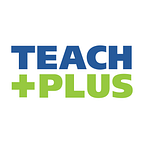Why Changing General Education Preparation Improves Outcomes for Students with Special Needs
By Lisa Caputo Love
Manuel, one of my favorite students, had a hard time in class. He would raise his hand and participate, but when it came to independent work, he had difficulty reading the text and writing responses. I tried my best to figure out what would work for him, but my knowledge of interventions was limited and none of the ones I knew about were working for him. I just did not have the right tools to help him.
It was my first year teaching second grade and I was worried. If a student does not learn to read by fourth grade, they are four times more likely to drop out of high school.
I wanted to do everything I could so my students wouldn’t become the next statistic. My general education coursework provided me with only a cursory understanding of strategies for struggling learners, and so I enrolled in a master’s program in special education. Though I had never intended to become a special education teacher, I felt that the best way to learn how to address the needs of Manuel and other diverse learners in my classroom was to learn how to implement the strategies specifically designed to provide multiple points of access, engagement, and differentiated assessment.
Within the first semester next year, I was able to implement many of the strategies I learned in class.
By the end of that year, my students were making progress, and I finally felt the feeling I went into teaching to feel: I was making a difference.
I believe that teacher certification should be restructured to provide all teachers with enough of a basic level of knowledge to teach diverse learners, including more comprehensive strategies that focus on inclusive practices.
Seventy to eighty percent of general education teachers surveyed report that they feel unprepared to teach diverse learners. And yet, according to IDEA, ninety five percent of students with disabilities spend at least part of their day in the general education setting. Special education teachers are given entire semesters to learn the process that provides targeted support for students based on their academic or behavioral needs, yet general education teachers are the ones expected to implement it in their classrooms. If I had been trained using the techniques and coursework provided to special education teachers, I would not have had to seek out an additional degree to fulfill the basic expectations of my job.
Restructuring certification could also help address teacher shortages. Ill- prepared teachers leave at a rate of 2–3 times more than teachers that are prepared in the classroom costing districts thousands of dollars in recruitment and training. When administrators speak about “shortages,” most are specifically addressing either the quality of the candidates, or lack of candidates in certain certification areas, mostly special education and bilingual education. If certification is restructured in this way, all teachers will be better prepared to meet the needs of the diverse students’ in their classrooms, lowering the misdiagnosis of students. Additionally, more teachers may become inspired to become special education teachers, like me, once exposed to the content addressed.
If I hadn’t gotten my masters, I would not have made the impact I made on Manuel, and all my other students’ lives. But teachers should not have to attain a master’s degree to provide for the basic needs of all of their students. The need for separate certification for bilingual and special education will always be needed, but the basic premise of the instructional methods taught in those classes benefit all learners and should be provided to all teacher candidates.
This past spring, I attended the high school graduation of Manuel. He sent me an email thanking me for everything I’ve done, saying that I was “a huge part of my childhood and life,”and that I should expect a college graduation invite in the near future. I can’t wait to attend.
Lisa Caputo Love is a learning behavior specialist for the intermediate grades at Hawthorne Scholastic Academy in Chicago. She is a Teach Plus Illinois Teaching Policy Fellow.
